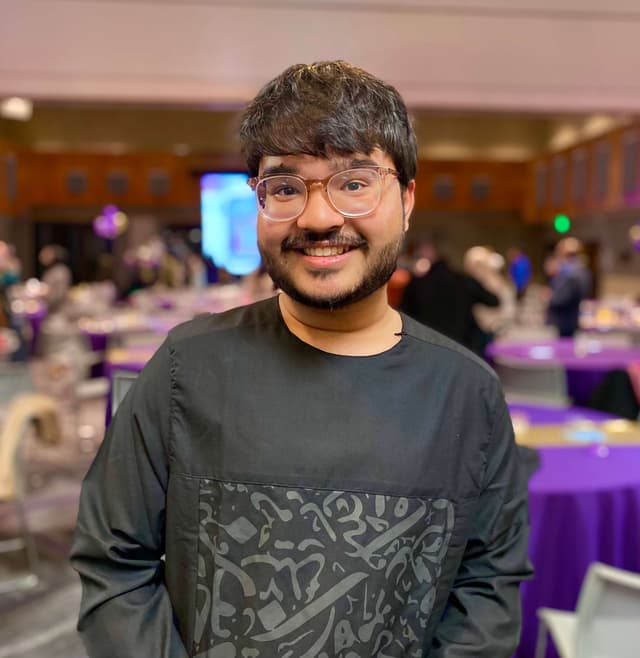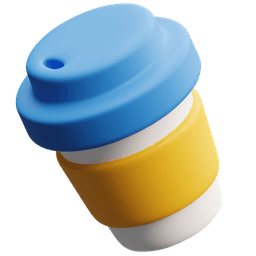Hey, I'm Fardeem Munir.
Currently, I'm a software engineer at Ramp. I am actively exploring AI Engineering and building Lalah - a meditation app for muslims on nights and weekends.
I recently graduated from Northwestern University. During my time there, I was working at Centered, a productivity startup out of SF. Juggling school and a startup, was uhhh, a lot - but I learnt more than I could have ever had. In many ways, Centered was my real CS undergrad.
Still reading? Here's more.
In 5th grade I was promised that if I learned how to code I would make lots and lots of money on the internet. The money never came, but I did fall in love with coding.
I have been hacking ever since. My first big project was when the Bangladesh government blocked all social media sites, I wrote a chat app for my friends. I had no idea how I'd do it so I learnt javascript over a summer and got it done. I still love JS, but am more promiscuous and have a secret love affair with Rust.
I was also reading a ton of Paul Graham essays at the time and just became obsessed with startups (and tried doing one in 7th grade. lolz) As such, I'm deeply curious about marketing, sales, finance, venture and all the ingredients that gets mixed together to make a startup - although I’d say my core strength is still the technicals. It would be wonderful to start something of my own someday.
Other than tech, I just really enjoy learning. I do a lot of learning through books but I greatly enjoy learning from people (that would be you!). One book that has really shaped me in this regard is Ventakesh Rao's Breaking Smart, which is an in-depth exploration of how software is eating the world.
If you want to chop it up about building delightful apps, tech, AI/ML, Islam, life or some strange mix or all, hit me up at hey@fardeem.com or Twitter.


Notes
Literally field notes from figuring things out. I want to figure things out once, and write about it so no one else has to.
projects, projects, projects

I love, LOVE building things – mostly apps, but experimenting with hardware and woodworking as well these days. These are some of my greatest hits.
I am heavily inspired by Robin Sloan's an app can be a home-cooked meal when it comes to building things.
wyd.chat
iMessage texts are a treasure trove of data and I always wanted to see analytics from it. Who do you text the most? What group chats are the most busy? wyd is Spotify wrapped but for your iMessage.
HadithGPT
I indexed 40,000 hadiths (Islamic religious texts) into a vector database and connected it to the GPT-4 API. HadithGPT then lets you ask you questions and get answers and advice rooted in Islamic scripture.
HadithGPT blew up! It reached almost 100,000 users in a month until I had to shut it down because I was bleeding money from OpenAI fees. There's a lot of fun stories around this – donations from twitter to angry hate mail! – so ask me irl!
On Your Mind
I wanted to experiment with Whisper, OpenAI's speech-to-text model and it's remarkably accurate in transcribing english audio to text. On Your Mind let's you record a voice note about whatever is in your mind and it will use GPT to rewrite it in another format.
So, when you're overwhelmed you can rant about all the stuff you need to get done and how stressed you're – and get a clean todo list at the end.
My favorite use case for this was using it to write my college papers. I can talk faster than I can type so I would use On Your Mind to record how I wanted to structure a section, get it to rewrite it in an essay "tone" and polish the result from there. It's still my ideas but let's me get to a first draft faster.
ai-intern
I think every engineer should build an AI agent that understands how they work and their dev environment and helps them write code better.
With ai-intern, you can go from a prompt like "a python app with a react frontend, and a flask backend with authentication (login / sign up)" to a fully-functional prototype using AI generated code. For existing projects it can read your entire codebase and help you debug problems and outline how to approach adding a new feature.
I'm actively working on supporting larger codebases that don't fit within GPT's context window and even supporting local LLMs.
I also have some tiny apps that I'm quite proud of.
I made Spellings to help my sister prepare for her elementary school spellathon.
My roommate's work study job involved reading through images of newspaper and typing out summaries of articles mentioned within the images. I automated the entire process using Google's vision API and GPT.
The Med School ChatGPT Plugin augments ChatGPT with average mcat score and median GPA of med schools in the US and let's you ask ChatGPT what schools you should apply to given your stats. I have found that premed students have a hard time narrowing down which schools they want to apply to and the ChatGPT interface is quite good in helping in the process.